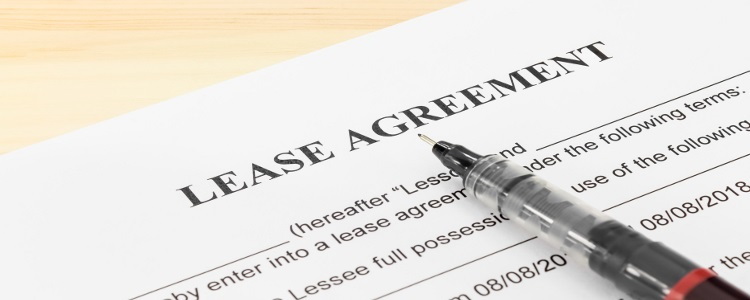To lease or to buy. This is often the question when you’re ready for another vehicle. Both financing routes have their pros and cons, but when you’re struggling with credit issues, you may find that getting approved for a lease won’t be as easy as qualifying for financing.
You typically need good credit in order to qualify to lease a car. According to Experian, over 68% of all new vehicle leases in the third quarter of 2023 went to consumers with credit scores in the prime range, credit scores of 661 and higher.
If your credit is good enough to lease, or you're working on improving it to that point, read on to learn more about how to lease a car.
What is Leasing a Car?
Leasing a car means that you agree to pay for the cost and depreciation that occurs while you have the car, typically around three years, or 36 months. When you lease, you don't typically keep the car when your lease term is up, instead, many people turn in their leased vehicle and opt to lease again.
Leasing is often cheaper than purchasing a car outright since you're only paying for the car while you have it.
How Do You Lease a Car?
The steps in the leasing process follow the same general rules no matter where you go. However, you may find it difficult to get approved for leasing if you’re dealing with subpar credit scores. Typically, you need a FICO score of at least 700 to qualify.

The process of leasing a car involves several steps:
- Research – Think about vehicles that meet your needs and the type of car that fulfills your wants. Then, check safety ratings and reliability so you can make a practical choice that fits your budget.
- Find a dealer – Check local lease deals and inventory.
- Test drive cars – Be sure to test drive the vehicles you’ve researched. Don’t be swayed by a salesperson and a sweet-sounding sports car if you need a family vehicle.
- Negotiate price – Keep the overall cap cost in mind, not just the monthly payment. Don’t forget to add extra miles, if necessary.
These are the basic steps in the leasing process, but they’re only a part of the information you need to be ready to lease a car.
Find a Car to Lease
The first step to leasing a vehicle is to find the car you want to lease. Leases are available through franchised dealerships of all the major automakers. This is because lease financing is handled by their captive lenders, the finance arms of these manufacturers.
When you lease, you're choosing a new vehicle, and most of your monthly payment is based on how much the car depreciates while you're driving it. Therefore, it's a good idea to choose a vehicle that holds its value. The less value the car is estimated to lose over your lease term, the lower your monthly payment.
For example, if you choose a vehicle that's known for holding its value, like a Subaru or Toyota, the car may still be worth approximately two-thirds of its value after three years. So, if you were leasing a $30,000 vehicle, your monthly payment would be based on the $10,000 the car loses over three years (the most common lease term). In this case, the depreciation portion of your lease payment would be approximately $278 a month before accounting for taxes or fees.
If you choose a $30,000 vehicle that isn't known for holding its value and it's only worth one-third of its original MSRP upon lease turn-in, you're looking at payments that are much higher. To find out how much the depreciation portion of your payment might be (again without taxes and fees, which vary by state and lender) divide the depreciation by your lease term. In this example, $20,000 divided by 36 equals $556 a month.
Find a Leasing Company That Can Approve You
Based on your research and the car you want to lease, you need to visit a franchised dealership of that brand and get approved. Keep in mind that different manufacturers and dealerships offer different incentives to lease.
If you have a list of vehicles in mind, you can look for different discounts on these models. This allows you to compare deals and choose one that's best for you, depending on what you qualify for.
Once you've decided and are ready to finalize a deal, you can move on to the next step.
Negotiate What You Can
In the example above, we estimated a simple monthly payment based solely on depreciation. In reality, there's much more to it than that. Lease payments can be negotiated, and you should negotiate the capitalized cost – the purchase price in a lease – first in order to get your best price.
Like an interest rate in buying, it costs to finance a lease, as well. This is called a money factory in leasing, and it's non-negotiable. You may be able to bargain on factors such as the down payment or security deposit, but if they won't budge, you may need to shop for another car or brand to get your best lease deal.
You also need to keep in mind how often you drive when you're choosing your lease deal. Leased vehicles come with a specific amount of miles built-in, and going over the allowed limit can cost you as much as 25 cents per mile. You can typically add miles at a lower cost upfront, but this raises your monthly payment. Not to mention, if you don't use the extra miles you bought, you're not getting this money back.
Sign and Drive
Once you've negotiated your best lease deal, make sure you read over the contract carefully before you sign it. Pay attention to the details – especially the ones that pertain to lease-end. Often, there are early termination fees and lump sum payments involved if you decide to end your lease early, and you should be aware of these from the start.
Also, pay attention to additional costs you may incur, how much insurance you're required to carry, and what happens if you default. Knowing all these details and being prepared for them ahead of time can make the end of the leasing process much smoother.
Now all that's left for you to do is enjoy and take care of the vehicle. Eventually, you have to decide if you want to purchase it at the end of the lease, turn it in and walk away, or turn around and lease another car, but you have some time before you have to make this choice.
Another thing to keep in mind is how the financial impacts of leasing differ from buying.

Knowing How Leasing and Buying Differ
There are certain parts of the car leasing process that correlate to the car buying process. From the lists below, you can see that the basic financial aspects of a lease and purchase are similar but have some key differences.
Leasing Terminology:
- Leasing – The process of financing a vehicle for a set amount of time, usually 24 to 48 months. Monthly payments are based on the estimated amount of depreciation plus the money factor over the lease term. Lessees have the option to turn in the car or purchase it at the end of the term.
- Capitalized cost – Negotiated selling price of the vehicle plus any additional fees.
- Residual value – Value of the car at the end of the lease set by the leasing company; also, the amount a vehicle can be purchased for after the lease term.
- Cap. cost reduction – A prepayment for a portion of the lease.
- Money factor – The amount charged for financing, expressed as a decimal.
Buying Terminology:
- Buying – The process of financing a vehicle for a set amount of time, usually 48 to 84 months. Monthly payments are based on the total purchase price plus interest over the term of the loan. Ownership is achieved at the end of the loan term.
- Purchase price – Negotiated selling price of the car plus taxes and fees.
- Down payment – An amount of money that's paid upfront that reduces the amount being financed.
- Interest rate – The amount charged for financing, expressed as a percentage.
As you can see, most of these aspects line up. However, notice that the list of buying terminology is shorter. This is because residual value is a unique concern in leasing, and there's no equivalent in the buying process that it compares to.
Is Leasing Right for You?
Before you jump into the car leasing process, you should consider the factors that make a lease worthwhile. Leasing can be a great option if you’re the kind of person who wants to have a new vehicle every few years, or if you don’t do a lot of driving.
But, because a leased vehicle gets turned back in when the term is up, you have to take care of the car. So, if you’re a bit accident prone, or aren’t the type to keep your vehicle clean, you may want to reconsider. Another factor to consider is that leasing has built-in mileage limits, and going over can cost big bucks when it’s time to turn in the car.
If Leasing isn’t for You
If you're not qualified to lease a vehicle, did you know that it's still possible to finance a new or lightly used car with bad credit? It's true. There's a whole network of dealers across the U.S. – called special finance dealerships – that work with lenders who are equipped to help people in many types of credit situations. Leasing’s not for everybody, and if you’re one of those people who might not be the right candidate, there’s good news: you could still be eligible to finance a car, even with less-than-perfect credit. Auto Credit Express can help.
We can help get you connected to one of these dealers in your area, so you can save yourself the hassle of going from dealership to dealership trying to find the right one. What's more, a bad credit auto loan helps to improve your credit with each on-time payment, so you may have a chance to lease the next time around.
The process is simple and free, and there's never any obligation.
















